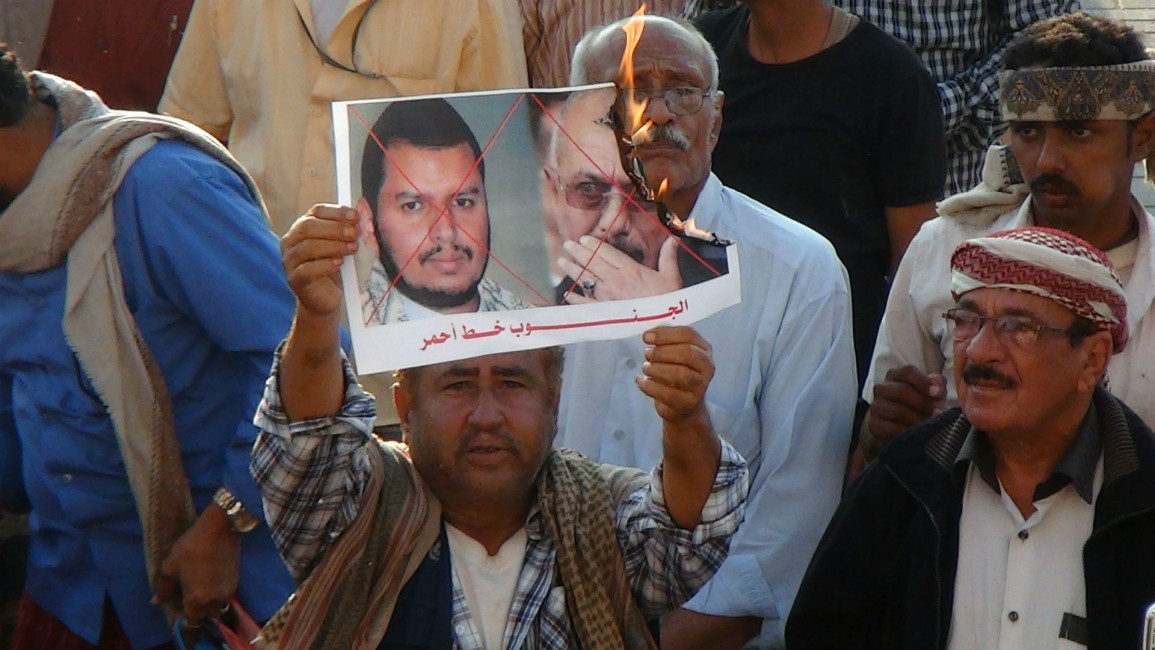UN to vote on Yemen crisis
UN Security Council members are considering the first resolution on Yemen since a rebel takeover spun the Arab world's poorest country into the danger of collapse.
A draft resolution obtained by The Associated Press demands that Shia Houthi rebels "immediately and unconditionally" withdraw forces from government institutions, release US-backed President Abed Rabbo Mansour Hadi and his Cabinet from house arrest, and engage "in good faith" in UN-led peace talks.
| Yemen is engaged in a process of self-determination free of any (foreign) tutelage. - Mohammed Abdulsalam, Houthi spokesman |
But the Houthi movement has vowed not to back down and rejected any foreign interference, while the draft also falls short of what the Arab countries of the Gulf Coordination Council (GCC) would like.
Alarmed and worried that Iran is backing the rebels, the largely Sunni Muslim states of the council have demanded a resolution that condemns the Houthis and acts under Chapter 7 of the UN Charter, meaning it can be militarily enforced.
At a Riyadh meeting of the GCC on Saturday, Yemen's neighbours also said they themselves would act if the rival factions fail to resolve their differences, without elaborating.
The 57-member Organisation of Islamic Cooperation (OIC) voiced support Sunday for the GCC statement and condemned the Houthi "coup".
And the Arab League said it will hold an emergency meeting on Yemen on Wednesday.
But in Sanaa, Houthi members were unrepentant. Houthi spokesman Mohammed Abdulsalam, quoted by the official Saba news agency, which the militia controls, insisted that "the Yemeni people won't cede power in the face of threats".
Abdulsalam said Yemenis were "engaged in a process of self-determination free of any (foreign) tutelage".
He denounced as "provocative blackmail" demands for the Houthis to relinquish power and criticised the withdrawal of ambassadors.
The UN draft emerged just two days after Secretary-General Ban Ki-moon told the council that Yemen was "collapsing before our eyes". Jordan and Britain quickly began working on a draft resolution.
At least nine countries, including Qatar, the UAE, Saudi Arabia and the United States, have closed their embassies in Yemen in the past few days amid fears that the Houthis will grab more territory and that the world's most dangerous branch of al-Qaeda, based in Yemen, will be emboldened by the chaos. The Houthis and militant Sunnis of the al-Qaeda branch are bitter rivals.
The UN-led talks continue but have made little ground, with envoy Jamal Benomar telling the Security Council on Thursday that Yemen is at a crossroads between "civil war and disintegration”.
The draft resolution "strongly deplores" the Houthis' actions to take over government institutions after grabbing control of the capital, Sanaa, in September. The rebels dissolved the parliament, and Hadi resigned last month.
The draft demands that all parties in Yemen "cease all armed hostilities against the people and the legitimate authorities of Yemen and relinquish the arms seized from Yemen's military and security institutions." It also calls on UN member states to "refrain from external interference which seeks to foment conflict and instability".
Meanwhile political forces and governors of three southern provinces – Aden, Lahij, and Mahra – formed a local "administrative, security, and political leadership rejecting the coup" by the Houthis.
In a statement issued at the end of a meeting in the main city of the south, Aden, leaders of the three provinces rejected all decisions by the Houthis, called for Hadi's reinstatement and affirmed their support for Yemen becoming a federation based on the outcome of a national dialogue held last year.



